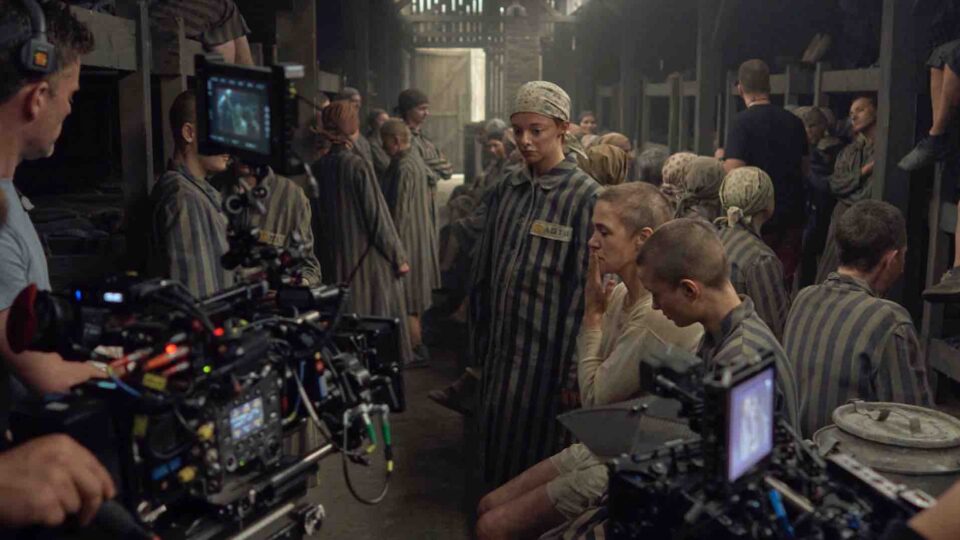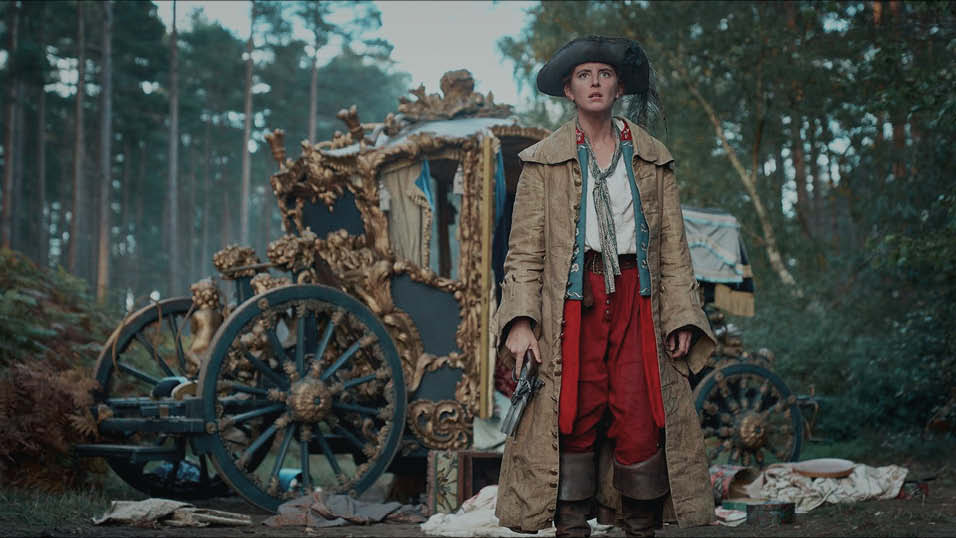Alan Furst’s novel Spies Of Warsaw will air as two 90-minute film adaptations in January on BBC Four. It has been executive produced by Richard Fell for Fresh Pictures and Chris Aird for the BBC, co-produced by Apple Film for TV Poland in association with Arte France and BBC Worldwide.
Writers Dick Clement and Ian La Frenais talked to the BBC about adapting the novel.
How did you originally come across Alan Furst and his series of novels?
DICK: Ian gave me one of his books and it happened to be Spies of Warsaw. I had never read Alan Furst at that point. But, as a result, I went out and read them all. I had a binge. Read the lot.
How involved has Alan been with the adaptation?
DICK: We’ve been in touch with him a lot. Though when we asked him recently if he would like to see the scripts he said, “Not really – I know that you have to change things when you switch from a novel to the screen, and I trust you.” So that was very nice. We also sent him some stills from filming, and I think those really whetted his appetite.
Does the film live up to the idea that you originally had in your heads?
DICK: I think it looks terrific. We were both knocked out by it. It looks really rich and moody. It’s got the period detail just right. It’s got everything, really. I think Alan will love it.
What was it that attracted you to Spies of Warsaw, in particular?
IAN: The period really intrigued us. It really is another world. A world of apprehension. And a different Europe to that which any of us are familiar with. I mean, you look at the maps in Alan’s novels and they have all these countries that don’t even exist anymore. DICK: We particularly love this pre-War period because it’s rarely covered in films.
And what do you make of the story’s hero, Jean-Francois Mercier?
DICK: Well Alan feels that the whole secret to Mercier is that he’s a French aristocrat. This idea that he’s a ‘chevalier’ and that he comes from a family of chevaliers – there’s a difference of attitude about him, I think, and we talked to David [Tennant] about that before he started filming. It’s that thing of coming from money. And with a sense of honour. He’s a gentleman, and I think there’s a romantic, slightly old fashioned quality about that which makes him very appealing to modern audiences.
It’s a very different role for David, isn’t it…
IAN: Yeah – you really see that on film. DICK: He’s quite tough, too. There are several scenes where he has to be really quite steely, and he does that very well. It’s very believable. David takes his job very seriously, and that’s important because his character is far more concerned with the upcoming war than a lot of the other people around him who are saying, “Oh come on, it’s not going to happen…”
Your previous projects have generally been set in the modern day. How did you find writing for the 1930s period?
IAN: Well, you have to remove the anachronisms; we never say “dude” in these scripts [laughing]. But seriously, modern words can easily slip by. “OK,” for example. Something that simple. Or “I’m on it…” DICK: We certainly wanted the dialogue to seem as natural as it can possibly be. Whatever the period, you’re always trying to create something that feels easy for the actors to say, and for modern audiences to listen to. IAN: But of course people did talk in a slightly more foreign way in the 1930s. I mean, the conversation between a man and woman who had just met for the first time would be more formal than it is now. There was more propriety in men’s approach to women. Obviously if the dialogue sounds too stilted, it will damage everything. But of course these actors are so good, too – they can make it all sound like conversation.
There seems to be a vogue for spy thrillers at the moment. Do you think that says something about the times we’re living through?
DICK: I think it might do. I certainly hope so. People suddenly seem to be more into this period than they were. IAN: Yes, there seems to be a wonderful nostalgia now among the public and novelists for the Cold War and so on. I think real spies must feel that things were so simple in the old days. So much simpler than the enemy you face now, in the ‘War on Terror’. And of course the technology is so different. DICK: No computers, no cell phones… IAN: There isn’t a cell phone in sight! DICK: I hate those endings to movies where everyone’s hitting the computer keys, trying to get the bank transfer before somebody blows somebody else’s head off. They’re really not very sexy, computers, for that kind of thing. Going a bit further back in time is much more appealing.
Could you imagine returning to this world for future adaptations?
IAN: We would love to do more – although Mercier isn’t in any of the other novels. Alan Furst tends to use different heroes in different novels. That’s just his way. DICK: So we might be forced to write a sequel to this, taking it on without Alan Furst’s help. Because we leave Mercier at the beginning of the Second World War. We haven’t covered wartime in this one whatsoever. IAN: So it’s a question of whether we do ‘the further adventures of Colonel Mercier’, or whether we go on to make other films in the Spies brand – Spies of Budapest and so on. It would be nice to put a sort of seal on it, so that audiences could think, “Ooh, good, THAT’S coming back…”
Pippa Considine
Share this story

















